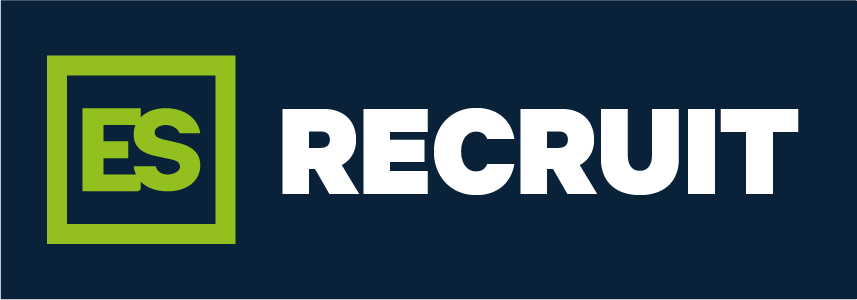When it comes to searching for advice on job interviews, there is an abundance of information for employers.
You don't see much guidance on what questions to ask the interviewer or how to ask questions in an interview. With that in mind, we have come up with a list of what questions we think you should ask at the end of an interview.
Why would you ask questions at the end of an interview?
A job interview is your chance to stand out, make an impression and find out more about the company that you may potentially end up working for. When the interviewer gets to the end of the interview and asks, "do you have any questions for me" it is your chance to probe and get more information about the company and the role.
Don't shoot your shot here and fall into the trap of asking the interviewer the straightforward or typical job interview questions such as "what does a typical day look like here?" or "what made you join the business". These questions will likely get you a short anecdotal reply from the interviewer. In the worst-case, you've just burned your chance to delve deeper into the business and learn more about the role and your potential new employer.
The best questions to ask an interview.
We've spent time speaking to our recruiters and scouring the internet doing our research to develop our list of what we think are the 10 best questions to ask at the end of an interview.
(1) What is on the horizon for the business, and what are the biggest threats to the company achieving those goals?
This is an important question that should be near the top of any candidate's list of job interview questions to ask. Regardless of the main aspects of your new role, developing a better understanding of the business and where its future lies is vital to figuring out what is ahead of you should you join.
(2) How do you see this position evolving as the business grows?
Asking your interviewer how you think the position will evolve or grow shows them that you are looking at more than just the initial stage of getting a job. It shows that you are looking at the bigger picture, and it will give you an idea of how the manager views the position.
(3) What would my first 60 days look like? How do you measure success?
Interviewees would usually ask the question, "What will a typical day look like?" but this gives you a chance to be much more specific and allows you to build up a solid picture of what your start with the company may look like and the goals you will have to hit to be a success. Asking this question will also give you an idea of how much the company has thought about the onboarding process.
(4) What are the common characteristics of people who have been successful in this position compared to those who haven't?
The answers to this question will give you an insight into the kinds of behaviours and attitudes that are most valued by the company. The answer to this question may mirror the company values, but occasionally dig out some values, good or bad, that the business doesn't outwardly talk about.
(5) What changes of industry innovations are you or the company most excited about?
Knowing the companies' plans around adopting new technology or ways of working could be pivotal in your decision to join. Some businesses are happy to sit where they are and not upset the apple cart others are disruptive and seize new technology almost as quick as it appears; this will help you see if you will be a good fit for the business. Asking this question in an interview will also show the interviewer that you are looking past the here and now.
(6) How have you changed in the time that you have worked here?
This may sound like an unusual question to ask in an interview, but I could bring out some interesting insights. Rather than just straight up asking, "what is the company culture like?" this turns that question into something that could give you an actual perspective on what the companies culture brings out of its people.
(7) How would the members of your team describe you?
Rephrasing the all too common interview question of "what is your management style?" massively shifts that conversation and forces the interviewer to answer the question from the perspective of their workers, meaning that their answers will need to consider their relationships with their reports. This will give you a great deal of insight into how they work with their team.
One of the top reasons for people leaving a job is manager misfit, so getting a deeper understanding of how this person is seen by their team will give you a more in-depth insight into whether you would want to work for them.
(8) What are the top reasons people have left this company by choice?
Questions around employee turnover and departures can be easily swept aside with answers such as "they weren't weren't a great fit" or "they weren't right for the job". Phrasing the question differently can stir up some great conversations surrounding expectations of the role and retention. An example could be that the business develops people exceptionally well but has limited scope for promotions, so staff leave for bigger and better things.
(9) Can you tell me more about the company culture and vision?
To stand the best possible chance for success in your job role, both your values and the business's values should be aligned. The interviewer's response to these questions should give you an insight into the companies culture. Whether it's how late their workers typically work until, if there is a social element to the workplace or if the working environment is ultra-supportive.
Asking about the vision will help you figure out if you are excited about where the company is going and if you can see yourself on that journey.
(10) When should I expect to hear back following the interview?
This allows you to set a realistic timeline with the interviewer and ask if any other steps need to be completed in the interview process.
Guidelines for asking questions in an interview
Now that we've covered what question you should ask in an interview, we wanted to give some advice on what not to ask as well.
Avoid asking "Me" questions.
"Me" questions, such as questions about the salary, health insurance, holiday time, hours per week, are questions that put you ahead of the employer. During an interview, you want to show the employer how you can benefit them, not vice versa. Once you have an offer, you can get into the nitty-gritty about the package.
Stick to asking the interviewer questions that will create a dialogue.
Try not to ask your interviewer questions that could be answered with a simple "yes" or "no". Try to ask questions that will start a conversation, as these are more likely to get you more valuable information.
Only ask one question at a time.
You don't want to overwhelm your interviewer by asking complicated multi-part questions. Make sure that each of the questions you ask in the interview has one specific point.
Don't focus too heavily on one subject.
Try to avoid asking your interviewer questions about just one topic; if you focus on just one thing, such as asking about the manager and their management style, the interviewer may think you have an issue with authority figures. Vary your questions for the best chance to get as much information about the role and the company as possible.
This is by no means a definitive list of the questions that you can ask in an interview. This is your chance to show the interviewer that you will be a perfect match for the job. Doing your research and asking questions that strike up conversations about the business will; demonstrate your interest and help you dig into the company culture to make a more informed decision about joining the business. Asking the right questions will also give you an additional chance to further highlight your skills and experience.
If you are currently looking for a new job, check out our latest roles or speak to our expert Recruiters and find out if we have a position that could be right for you.









